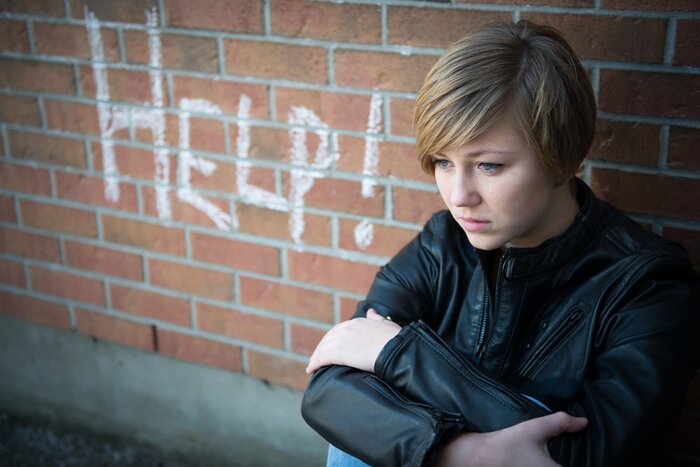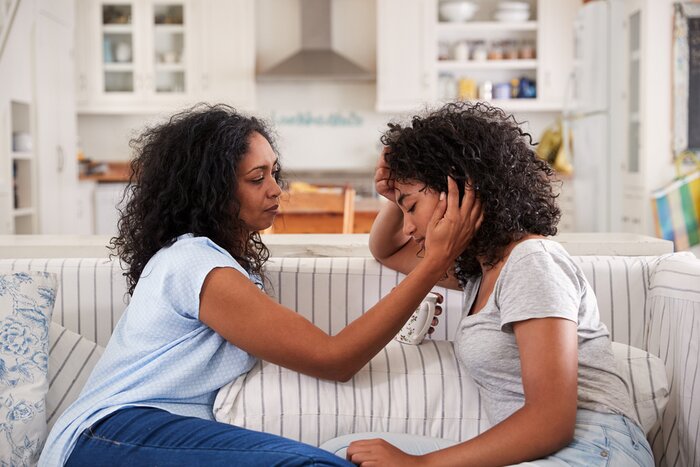
We aim to give food for thought as well as inspiring your creativity and
providing practical ideas you can’t wait to implement in your own settings!
My Voice Matters
A personal view of how important this year’s theme for Children’s Mental Health Week really is.

When I hear the words ‘children’s mental health week’, it takes me back to when I was around thirteen years old and experiencing a panic attack for the first time. The adults around me seemed to react with disbelief. “Why should a child of that age have anything to worry about?” was the general feeling I picked up.
And on the surface, I can see why. I went to a very middle-class school, I had a supportive family, good friends and was well-spoken for someone of my age. So, with all of that going for me, surely, I should have been fine.
But underneath my seemingly easy life there was a lot going on. I felt like an outcast in my class. I was one of the very few openly queer people in my secondary school and I also had undiagnosed ADHD and autism. This went under the radar for a long time. So, after continuing to have panic attacks quite frequently I was diagnosed with generalised anxiety disorder and depression.
But even putting all that to one side, it’s no wonder that me and many of my peers were struggling when the social climate was so nightmarish. The introduction of Instagram and Snapchat at the time meant the performance of putting your best foot forward was no longer restricted to in-person interactions. You were expected to perform perfection almost 24/7. And as social media continues to thrive and kids are expected to have an account on everything from Twitter to TikTok from as early as primary school these days, I can only imagine the kind of pressure they’re under.
Honestly, I didn’t realise how difficult they must have it until I watched Eighth Grade, which is a film based on what it’s like to be a child in school with social media being all the rage. I recommend watching it if you have the time to.

With all this being said, I do have some thoughts from my own experience, especially for parents, who might find it difficult to navigate all the ways in which teenagers’ lives are rapidly changing these days.
Of course, giving your child a certain amount of trust and freedom online is important. But as someone who grew up with unlimited access to the internet, and was tech savvy from a young age, there are many things I came across that I was probably too young to see or understand. So, I think that it’s important these days to be as hyper-vigilant as possible with monitoring and even (to some extent) restricting their time online.
Something I struggled with was that I knew the majority adults in my life wouldn’t take me seriously. It didn’t matter whether they were teachers or licensed therapists, because of my age it was hardly ever believed that I struggled just as much as I did. So please, if your child feels comfortable enough to come to you with their struggles, take it at face-value and listen to them. Even if a part of you thinks that they’re fibbing just a little bit, like a small child who fakes an illness to get out of a test the next day, hear them out. It can’t hurt to give them the benefit of the doubt and it will mean a great deal to them.

And finally, if you do get to the point where you’re sitting with your child at a GP practise or a therapist’s office, advocate for them if it’s obvious that they are not being taken seriously because of their age. I can’t tell you the number of times my issues were reduced to just hormones or teenage gossip. And I also can’t tell you how much it meant to me when my mum sympathised with me that they were ridiculous for saying things like that.
With many thanks to Dylan Ewens (they/them) for sharing their experience and writing this article. Dylan is 21 years old and lives in West Sussex. They enjoy music, song writing, reading, and writing fiction. They are passionate about gaining more understanding of neurodivergence (with a special interest in ADHD and Autism) and communicating this knowledge with others.